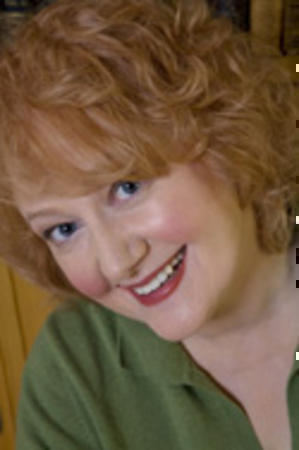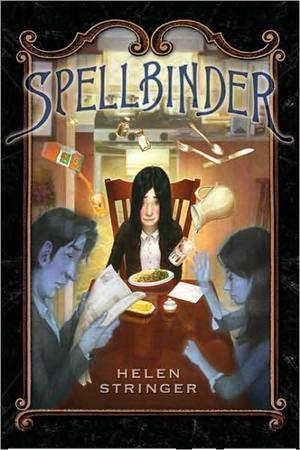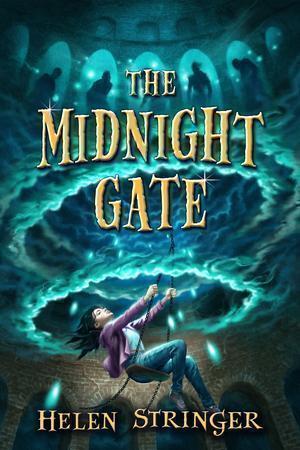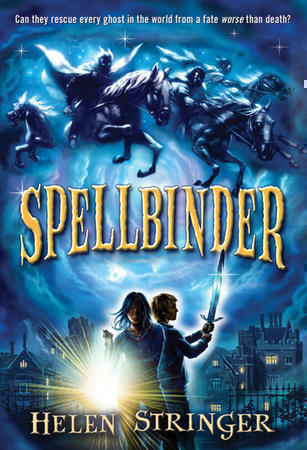
Helen Stringer has always wanted to tell stories but not necessarily write. As a child growing up in Liverpool, England, she would tell stories to her younger sister, but she found if she wrote them down, they were never as good as if told aloud.
“I suspect this was because although I could see them so vividly in my head,” Helen said in an email interview. “I lacked the tools/skills to transfer those inner images to paper.”
That all changed when she discovered film and got her first camera, “Now I could just re-create the pictures in my head!”
The result was becoming focused on film and television with Helen moving to the United States and working in the entertainment business. But, Helen says, there are things you can’t script like exploring a character’s inner life or know what they’re thinking. A screenplay becomes a blueprint, nothing more.
Feeling those limitations, Helen decided to change her focus to writing books.
“When I returned to writing I found it immensely satisfying to tell a complete story,” Helen said. “I enjoyed it so much I didn’t really care whether anything was every published or not!”
Of course Helen did get published. Her first book, “Spellbinder,” hit bookstores in 2010 and its followup, “Midnight Gate,” earlier this month.
 “Spellbinder” introduces readers to Belladonna Johnson, a shy 12-year-old who can see ghosts. It’s a family trait — everyone on her mother’s side of the family has this ability. Which is good for Belladonna, because her parents are dead. She still lives at home with them and has a relatively normal life until all the ghosts in the world vanish.
“Spellbinder” introduces readers to Belladonna Johnson, a shy 12-year-old who can see ghosts. It’s a family trait — everyone on her mother’s side of the family has this ability. Which is good for Belladonna, because her parents are dead. She still lives at home with them and has a relatively normal life until all the ghosts in the world vanish.
Belladonna is desperate to get her parents back and soon learns that the disappearance is the work of the Empress of the Dark Spaces, who once almost succeeded in destroying the world and is trying to return.
Belladonna has been chosen as the world’s new Spellbinder and she has a Paladin, or protector. Unfortunately, Belladonna’s Paladin is Steve Evans, a boy who has never completed a homework assignment in his life. With the help of a ghost named Elsie, Belladonna and Steve travel to the bleak Land of the Dead to save the ghosts and the world.
As the series progresses Belladonna discovers the identity of the woman who became the Empress but is unable to prevent her getting back to the real world. At the same time she realizes that Steve’s background is not what she had thought. Belladonna’s suspicions make her hold back information until it is almost too late – for Steve and everyone else.
Helen hopes her readers gain a sense of adventure and curiosity from her books. All the creatures and most of the places in the books are based in reality, she said. And Belladonna and Steve are adventurous but not stupid.
“They try to do the right thing and involve the adults first, but don’t hesitate when it becomes clear that everything depends on them. They are nervous and doubtful as well as brave and ingenious. They use everything at their disposal to figure out how to approach things, whether it’s going to the library and looking stuff up in books or traveling through the Land of the Dead to find the Queen of the Abyss.”
Helen’s own experiences as a young reader prompted her to write “Spellbinder” and “Midnight Gate” for middle readers (ages 9-12). “I vividly remember being totally absorbed by books when I was that age,” she said. “I disappeared into the stories and they have colored my outlook ever since.”
“Philip Pullman says that he writes  for younger readers in part because there is more freedom to explore. Fantasy is a real possibility when you are young — there really could be other worlds and other creatures. It is a time in our lives when anything could happen and we would just accept it. Would our 11- and 12-year-old selves have been surprised to discover fairies at the bottom of the garden? I don’t think so.”
for younger readers in part because there is more freedom to explore. Fantasy is a real possibility when you are young — there really could be other worlds and other creatures. It is a time in our lives when anything could happen and we would just accept it. Would our 11- and 12-year-old selves have been surprised to discover fairies at the bottom of the garden? I don’t think so.”
The initial idea for “Spellbinder” started with a short story story called “The House with Six Turrets and Five thousand Windows.” Helen wrote the story years ago and rediscovered it in what she thought was a box of junk. She reread it and had the idea to write a collection of stories. The first story was about a little girl who could see ghosts. She pictured this girl with dark hair sitting on a table tomb.
“It took off from there, really,” Helen said. “The larger ideas about the stories were inspired by the idea of ghosts just being a matter-of-fact part of her life, not something weird and extraordinary. Then, of course, once you accept that ghosts are all around, why shouldn’t other things be here too? Just because we’re told that mythological creatures and the denizens of folk tales are not real, why should that be so? Perhaps they are still all around us and we just don’t notice. Oh, and the real lesson of this whole thing is: NEVER throw anything away!”
When Helen began work on “Spellbinder” she was working a full-time job. That meant writing for about 45 minutes before work and working for extended periods for the weekend. But working for short bursts made it difficult to retain mood and pace, Helen said. ” I spent a lot of time reviewing things I’d only just written, which could be frustrating.”
Helen also found herself questioning the appropriateness of some things she was writing. But with publication and the editing process, the author has gained confidence doesn’t second-guess herself as frequently.
In total, it took Helen about eight months to complete her first draft of “Spellbinder” and another six months of revisions. “Midnight Gate” was much easier to write and took less time because when Helen sat down to write, she already knew her characters and where they were going.
The whole experience has been a thrill for Helen. She loves the research and “just telling the stories and seeing all the threads come together. Although I vividly remember writing the first short sentence of ‘Spellbinder,’ I still find myself opening the books, reading random paragraphs and being totally unable to believe that I actually wrote it!”
Helen wrote “Spellbinder” for herself. She had no expectations of publications. “It was truly liberating to rediscover the person who told my sister stories at bedtime all those years ago and finally recognize my own voice in my work,” she said.
 Helen took a lot of time and care to answer all of my questions. Read a complete transcript of the Q&A, including Helen’s favorite character in the series and books she remembers from her own experiences as a young reader.
Helen took a lot of time and care to answer all of my questions. Read a complete transcript of the Q&A, including Helen’s favorite character in the series and books she remembers from her own experiences as a young reader.
For excerpts, games, links and more, visit Helen’s website and check out her blog tour.
May 23: Mundie Kids
May 24: Poisoned Rationality
May 25: Cracking the Cover
May 26: Bookworming in the 21st Century
May 27: The OWL for YA
May 30: Wicked Awesome Books
May 31: Teenreads
Jun 1: KidLitFrenzy
Jun 2: Mr. Ripley’s Enchanted Books
Jun 3: The Joys of Reading
